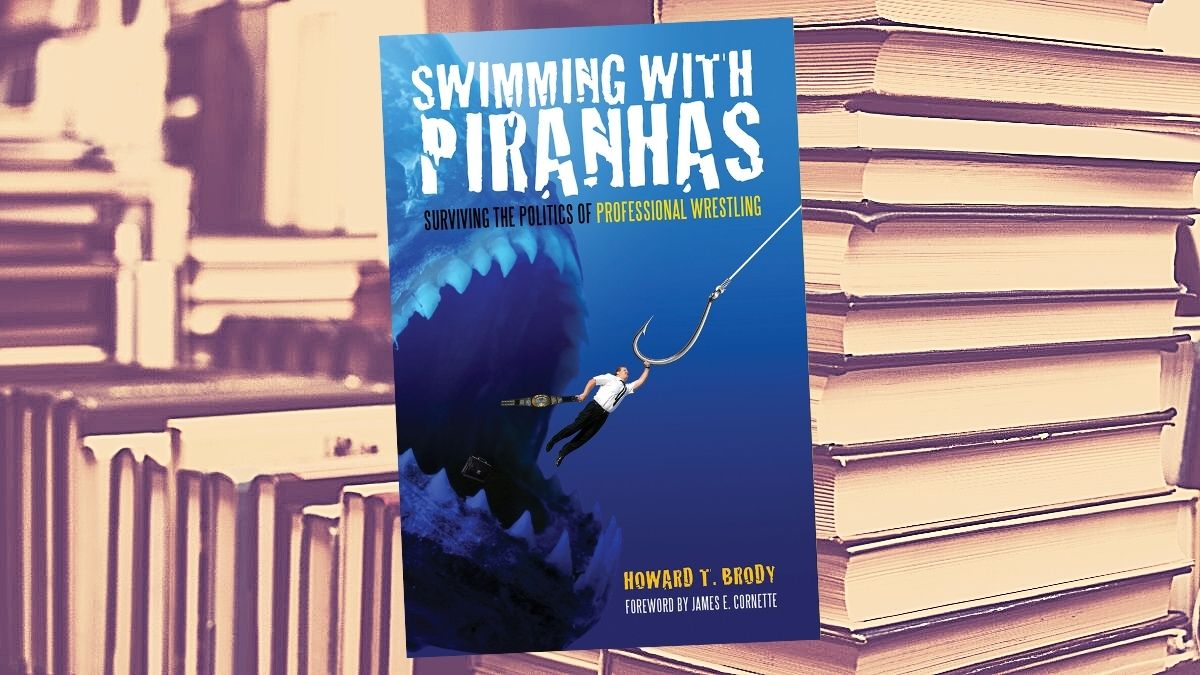Howard Brody’s autobiography Swimming with Piranhas: Surviving the Politics of Professional Wrestling offers a unique view of the wrestling industry, which has never been detailed before.

And that’s exactly what the author set out to do.
“I tried to bring a different point of view than any of the other books that have been written on wrestling before because everything has really been from the wrestler’s perspective,” Brody told SLAM! Wrestling. “I felt in order for this to really be a compelling type of thing, I had to get not so much into the wrestling, which I have a little bit of that, but more from a back story, the behind the scenes, dealing with television, sponsors and all that type of stuff. Something you wouldn’t get anywhere else.”
Much of Brody’s tale highlights the lengths he was willing to go to in order to be successful in the wrestling industry.
Brody had a few successes pursuing his wrestling dreams, but more often than not, his attempts to launch promotions and book overseas tours ended up falling short of where he hoped the ventures would end up.
“I didn’t want to sugarcoat anything and I wanted to show how difficult it is to really make it big time in the business,” Brody said. “I look at it and I never made it big time, but I’m very happy with what I did accomplish and I’m happy with my life in doing it.”
Brody doesn’t hold back in offering his opinions and stories about those he crossed paths with in his journey. That comes from one of Brody’s top priorities in writing his tome.
“In order for this to be really accepted, I had to be honest with everything,” Brody said. “If I was going to be anything else, it was just going to be another bullshit book and I think people are tired of that.” Brody mentioned fellow wrestling titles such as Mick Foley’s Have a Nice Day: A Tale of Blood and Sweatsocks, Bret Hart’s Hitman: My Real Life in the Cartoon World of Wrestling and JJ Dillon’s Wrestlers are Like Seagulls: From McMahon to McMahon as being brutally honest and examples of what he was hoping to emulate.
The former NWA president doesn’t fear backlash for any of the comments in his book because he feels — and rightfully so — that he opened himself up more than anyone else throughout the autobiography.

“There were times when I couldn’t even write,” Brody said. “I had to walk away from the computer. A lot of that had to do with the more personal stuff. I made a decision to retell a couple of stories that I was not very proud of.”
A charm of Brody’s story is learning about some of the people he worked with during his time in the business. This includes the likes of Hiro Matsuda — who trained such stars as Hulk Hogan and Lex Luger, but very little has been written about him previously — and former promoters Herb Abrams and Dennis Coralluzo.
“I’m also real proud that I covered other people in the book, some of the people that haven’t really been talked about in other books,” Brody said. “It’s not just my story.”
The book wasn’t Brody’s first foray into the literary world, as he penned Dusty Rhodes’ 2005 autobiography Dusty: Reflections of an American Dream.In putting the project together, Brody used paperwork he had saved over the years, so as to be as factual as possible and he also contacted the people that were part of his travels to help fill in any blanks.
“I engaged a lot of people, I kept notes, I kept a lot of paperwork and a lot of it was from recall,” Brody said. “There are some things in people’s lives, where you just remember.”
While Brody is busy relocating to Florida from Las Vegas to begin a new chapter of his life in 2010, he doesn’t foresee himself getting involved in the wrestling industry again. But, as fans have heard so many times before, you can never say never in this biz.
RELATED LINKS
- Buy Swimming with Piranhas: Surviving the Politics of Pro Wrestling at Amazon.com or Amazon.ca
- Howard Brody story archive



